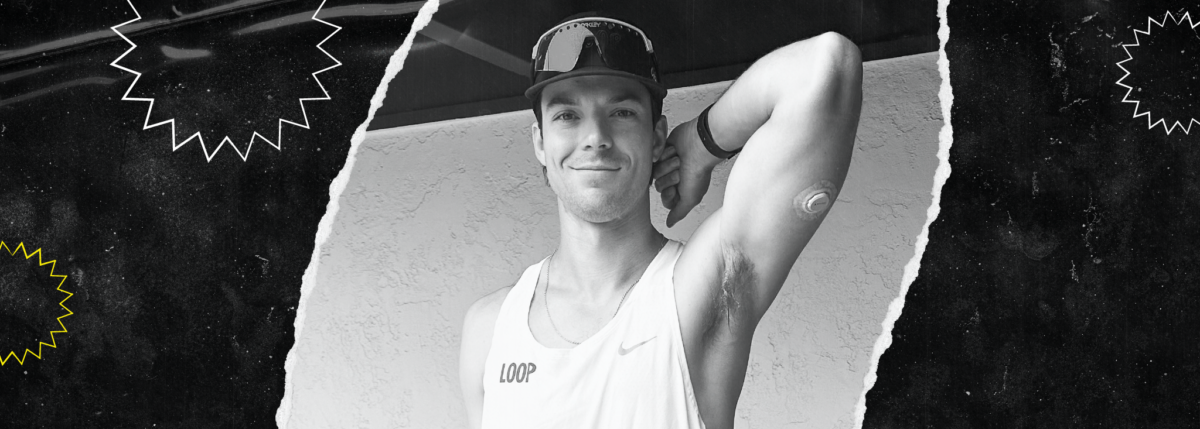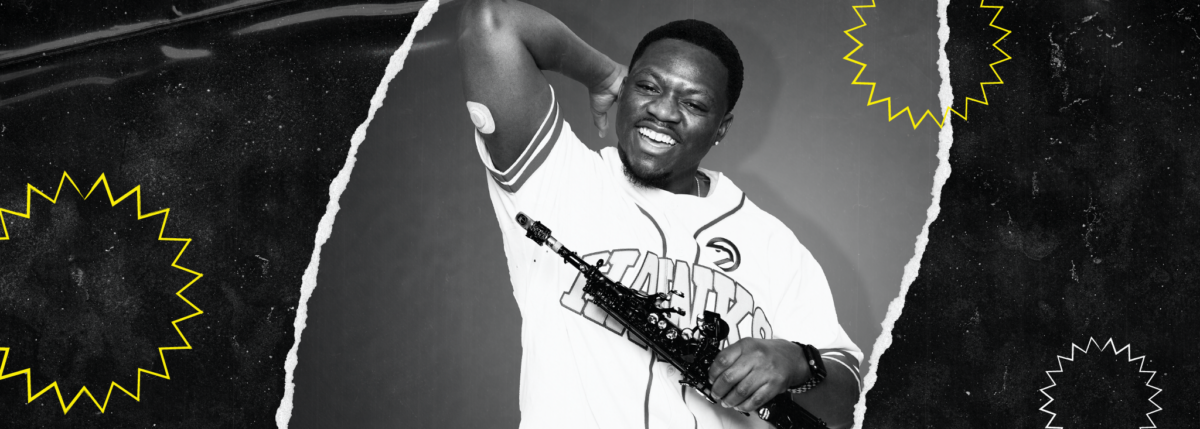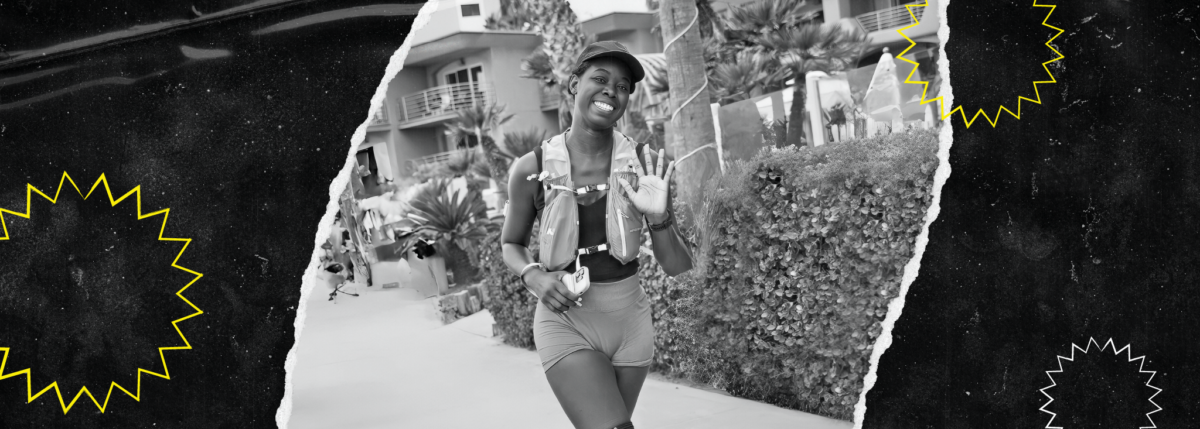Hypoglycemia, Food and Type 2 Diabetes w/ Robert Lewis
Written by: T'ara Smith, MS, Nutrition Education
5 minute read
July 13, 2021
Robert Lewis shares his experiences with hypoglycemia, how it's impacted his life with food + T2D, and why Xeris Gvoke HypoPen is his safety net.
This content was made possible with support from Xeris Pharmaceuticals Inc. Beyond Type 2 maintains full editorial control of all content published on our platforms.
A hypoglycemia emergency can occur anywhere at any time. For people with type 2 diabetes, especially those on insulin or other glucose-lowering medications, knowing your options to treat low blood sugar can prevent serious health issues and even save your life. In the interview below, we’re joined by Robert Lewis, aka the Happy Diabetic, who discusses how hypoglycemia has impacted his life with type 2 diabetes and how he considers his Gvoke HypoPen® to be his safety net. Though the interview is condensed and edited, check out our full discussion in the video on YouTube below!
BT2: Hi Robert! Thanks for joining us again! Could you tell people how you were diagnosed with diabetes?
Robert: In 1998, I was traveling home to Iowa from a vacation in Colorado and wasn’t feeling good. I was feeling tired, super thirsty and had to use the bathroom at almost every rest stop. When I got back to my hometown, I went to go see my doctor and explained to him what was going on. He suggested we run some tests and pricked my finger. The number 26.4 mmol/L475 mg/dL showed up and he said, “Wow, this is amazing. Congratulations, you have diabetes.”
I asked, “what’s diabetes” and he left, came back with a bunch of pamphlets, put them in my arms and told me to go home and read them.
I threw them right away and said told myself this is not going to be the disease for me and was in denial for about six months. I wasn’t checking my blood sugar and was told about everything I couldn’t eat, but I didn’t care.
After about six months, things weren’t looking too good for me. My wife, Cindy, sent me to a local hospital for some diabetes education classes. I had a “diabetic spiritual awakening” and started it taking ownership of my disease.
Where were you in your career as a chef at this point?
I was a corporate chef, so I worked for a chain of restaurants. We had about 50 restaurants in seven states and I was in charge of product development and training. So although I wasn’t working daily in a restaurant as a chef, which I have done for many years, I was creating and eating and tasting and putting together dishes that we might serve.
Was it easy for you to make that transition to a healthier diet?
It wasn’t really that difficult once I really learned the foundation of diabetic-friendly cooking. I started learning about what effect foods had on carbohydrates and sodium and just tried to create chef-inspired foods that tasted amazing. Because for me, that’s what was missing. I mean, I went to Borders, I went to a bookstore looking for cookbooks written by chefs with diabetes or dietitians and doctors, and nothing was interesting to me; they didn’t have the kinds of foods I liked. I’ve always enjoyed fresh vegetables and sauté dishes with creative flavors.
What medications did your doctors prescribe?
I was on metformin for years and still struggled with my blood sugar. When I got a handle on the fact that there’s a correlation between portion size, exercise, taking my medicines when I’m supposed to and seeing my doctor on a regular basis, things really started to turn around for me. I’ve used drugs like Ozempic and Byetta and those were amazing, amazing medications for me. Two years ago, I started taking mealtime insulin.
Did your doctors talk to you about low blood sugar? And if so, when did they do that?
No one ever spoke about it with me. It wasn’t until I learned about a Xeris product, Gvoke HypoPen®, that I had a conversation about hypoglycemia. She filled in all the blanks for me. I asked her in the eight years we’ve had this relationship, why was that not ever discussed? She thought it was something I’d never need to know about.
Now, my lows occur more because I may calculate my carbs incorrectly, I take too much insulin and I end up with low blood sugars. But the doctors never talked to me even when I was newly diagnosed, no one ever got into it with me about that. No one. This is a very common story that I’ve heard from many of my fellow diabetics.
It’s so important for people with type 2, especially those on insulin to know about low blood sugars because they can happen at any time. What was your first low blood sugar episode like? What symptoms did you notice?
I was shaky and sweaty. I could tell I was having a low and had some glucose tabs nearby. It was a pretty scary episode. In those days, I check my blood glucose with a fingerstick, but I use a continuous glucose monitor (CGM) now. I know if I start dropping around or under 3.3 mmol/L60 mg/dL, I start to feel the symptoms. I only take insulin when I eat and learned to split my dosages, if necessary. So, if I need to take 12 or 10 units, I’ll take half that and wait an hour or so before taking the rest. I also scan my CGM often and can see which direction my blood glucose is trending and make a quick decision if I need to.
You’ve spoken about Gvoke HypoPen®, a treatment for hypoglycemia, do you keep that on hand with you just in case you have a hypoglycemia event?
Yeah, I’ll take HypoPen® for sure on vacation or traveling, in general. If I’m out bike riding, typically I won’t have that with me, but I’ll have my CGM. I might have some glucose tabs or some Glucose SOS packets, something like that in my pocket ready to go. But to prevent hypoglycemia, I’m conscious about, what I’ve eaten and how much insulin have I taken before I go for a bike ride. If I need assistance, my wife and kids know how to use HypoPen. Some of the scarier lows for me can happen at night. My wife is quick to get up and scan my CGM and help me treat the low. I would definitely say HypoPen is my safety net.
What do you think are some ways people with type 2 diabetes can discuss hypoglycemia with their doctors?
I would start with the topic of time-in-range. chat about what it means to be in the range between 3.9 to 10.0 mmol/L70 to 180 mg/dL and discuss your blood glucose range goals with your doctor. Unfortunately, I was told early on to keep my blood glucose at 6.9 mmol/L125 mg/dL, or else I was failing—or at least that’s how I felt. My current doctor actually praises me for having my time-in-range at 80 percent, which means I’m staying between 3.9 mmol/L70 mg/dL and 10.0 mmol/L180 mg/dL 80 percent of the time. I think it’s a critical metric to discuss.
I also encourage everyone to be their own best advocate. When you go see your doctor or endocrinologist, be prepared. Have a list of questions and make them work for you. They’re busy people but come with questions about hypoglycemia treatment options like Gvoke HypoPen and glucose tablets. but if you come with questions and do a little research and say “hey, what about HypoPen and glucose tablets,” and whatever. Come with your questions and advocate for yourself because nobody will do it if you don’t.
For more information about hypoglycemia, click here.
Visit Robert’s website, The Happy Diabetic, for healthy recipes and to listen to his podcast about food and diabetes.

Author
T'ara Smith, MS, Nutrition Education
T’ara was diagnosed with type 2 diabetes in July 2017 at the age of 25. Since her diagnosis, she focused her academic studies and career on diabetes awareness and living a full life with it. She’s excited to have joined the Beyond Type 1 team to continue her work. Two years later, T'ara discovered she'd been misdiagnosed with type 2 and actually has latent autoimmune diabetes in adults (LADA). Outside the office, T’ara enjoys going to the movies, visiting parks with her dog, listening to BTS and cooking awesome healthy meals. T’ara holds an MS in Nutrition Education from American University.
Related Resources

Jordan Sooter’s journey to running marathons began in college as a way to stay fit....
Read more

Antoine Gibson is no stranger to overcoming challenges. As a saxophonist and marathon runner living...
Read more

Danica Collins not only prepared for one of the most challenging physical events of her...
Read more

